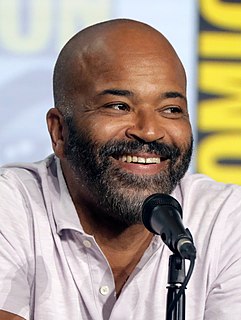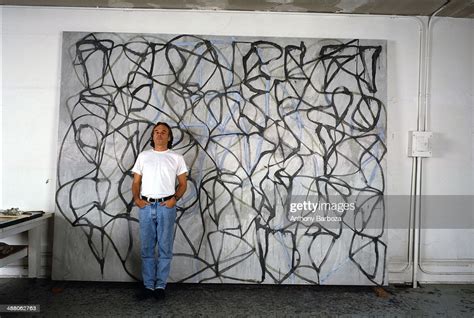A Quote by Eric Schlosser
During my school visits, I really enjoy the feedback I get from them much more than anything I might tell say to them.
Related Quotes
Nothing is more debilitating than to care about something you can't do anything about. And you can't do anything about your adult children. You can want better for them, and maybe even begin to provide something for them, but in the long run, you cannot do anything about someone else's vibration other than hold them in the best light you can, mentally, and then project that to them. And sometimes, distance makes that much more possible than being up close to them.
With the artists, I don't teach, I coach. I can't tell them how to make art. I tell them to make more art. I tell them to get up early and stay up late. I tell them not to quit. I tell them if somebody else is already making their work. My job is to be current with the discourse and not be an asshole. That's all I wanted in a professor.
Some might say that sunshine follows thunderGo and tell it to the man who cannot shineSome might say that we should never ponderOn our thoughts today cos they will sway over timeSome might say they don't believe in heaven Go and tell it to the man who lives in hellSome might say you get what you've been givenIf you don't get yours I won't get mine as well
We've now got a group of young people in this country who for all practical purposes are American. They grew up here. They've gone to school here. They don't know anything other than being American kids. But their parents may have brought them here without all the proper paperwork - might have brought them here when they were three, might have brought them here when they were five. And so, lo and behold, by the time they finish school, and they're ready to go to college, they find out they can't go to college and, in fact, their status as Americans are threatened.
Real writers-that is, capital W Writers-rarely make much money. Their biggest reward is the occasional reader's response.... Commentators-in-print voicing big fat opinions-you might call us small w writers-get considerably more feedback than Writers. The letters I personally find most flattering are not the very rare ones that speak well of my editorials, but the occasional reader who wants to know who writes them. I always happily assume the letter-writers is implying that the editorials are so good that I couldn't have written them myself.
I'm much more concerned about what artists think. But as you get older you tend to get much more isolated; you're not out in the bar, having long drunken arguments on the benefits of your work vs. someone else's. It's hard to know how people are looking at it, and you don't get much feedback. The written critical stuff seems to be the feedback, but that's hard to interpret.
I'll tell them how I survive it. I'll tell them that on bad mornings, it feels impossible to take pleasure in anything because I'm afraid it could be taken away. That's when I make a list in my head of every act of goodness I've seen someone do. It's like a game. Repetitive. Even a little tedious after more than twenty years.
But there are much worse games to play.
I think a play can do almost anything, because it's also a static form, much more so than in a movie. In a movie you can move the scenery, you can do anything any way. A cartoon, happens in a limited amount of space and a limited amount of time, and you can only get so many words before the reader's gonna get impatient. All of these forms that I enjoy are in a sense a slight of hand, where you have to suggest much more than you really show. You have to, in a sense, seduce the reader and trick the reader or the audience into going with you.

































